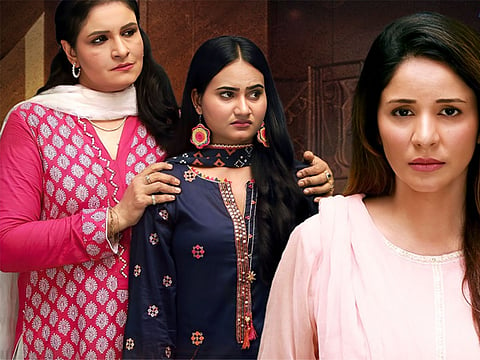Bahu Beti: The hit Pakistani TV show that sheds light on family power play and gender dynamics
What makes it epic is its emotional core and how closely it mirrors women's lived reality

In a world where the lines between daughter-in-law and daughter remain sharply drawn, Bahu Beti—the latest Pakistani primetime drama on MUN TV—is striking a chord with audiences for its raw portrayal of intra-family inequalities and emotional resilience.
At the heart of this daily soap is Hadiqa, played with quiet intensity by Shiza Hashmi, a newlywed who walks into her marital home only to realise that the title of 'bahu' doesn’t come with equal footing.
While her mother-in-law Sultana (Sabahat Adil) dotes on her own daughter Haniya (Rimsha Fatima), she treats Hadiqa as little more than a glorified house help.
What makes Bahu Beti compelling is not just its emotional core, but how it mirrors the lived reality of many South Asian women.
The drama deftly explores the power imbalance between a daughter and a daughter-in-law, and the quiet endurance that women are expected to display.
Shoaib Hassan plays Farhan, Hadiqa’s husband, who—unlike many male leads in similar dramas—is written with a progressive lens. His character stands by Hadiqa, offering glimpses of hope in a home where love and loyalty are tested daily.
Directed by Zahid Mehmood and written by Imran Saifar, Bahu Beti airs Monday to Thursday at 8 PM on MUN TV and has rapidly built a loyal following. New episodes are also available on the channel's official website and its YouTube channel.
Sign up for the Daily Briefing
Get the latest news and updates straight to your inbox


